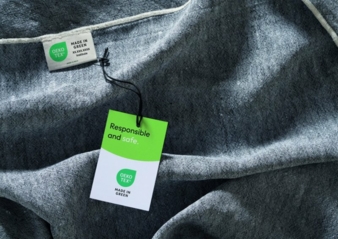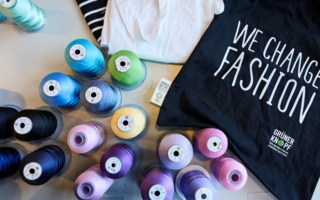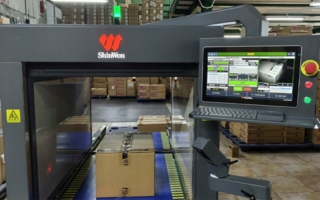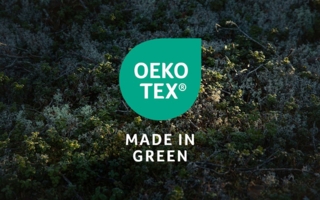14/11/2022 – Tangible support for due diligence — auf Deutsch lesen
Oeko-Tex launches Responsible Business tool and certification
The Oeko-Tex Responsible Business tool and certification supports brands, retailers and traders in the textile and leather sector with due diligence compliance.
Due diligence requires companies to take legal responsibility for all human rights and environmental violations in their global supply chains. Facing the multiple interests of worldwide stakeholders – employees, consumers, investors, media, and politics – with different points of view, companies must protect and communicate with all of them. Oeko-Tex Responsible Business allows companies to choose between a self-assessment of their due diligence status or achieve third-party certification validated by an Oeko-Tex institute.
Based on a wide range of international policies
“An expansion of our portfolio in this direction was important to us. Oeko-Tex has stood for product safety for more than three decades and continuously advocated transparent supply chains and corporate responsibility,” says Oeko-Tex Secretary General, Georg Dieners. “In terms of due diligence, a holistic analysis and evaluation is key. To develop this robust standard, we have used our proven, globally standardised system and 30 years of experience in the textiles and leather industry.”
The standard is based on the UN Guiding Principles on Business and Human Rights (UNGPs), the OECD Guideline for Multinational Enterprises, the OECD Due Diligence Guidance Textile and Footwear and the OECD Guideline for Responsible Business Conduct. It also ensures compliance with the German Supply Chain Act and the proposed European Directive on Corporate Sustainability Due Diligence.
Like the OECD Guidelines, the Oeko-Tex Responsible Business due diligence process is structured in six sections: business policy, risk assessment, integration of appropriate actions, continuous monitoring, transparent communication, and complaint mechanism.
Additionally, Oeko-Tex includes a seventh, voluntary module on climate action. In the climate module, companies commit to the Paris Agreement and its target to limit global warming to 1.5 degrees Celsius above pre-industrial temperatures. With this module, companies cansmap their climate performance, strategy and goal implementation, measure improvements within the company and target further supply chain improvements.
From self-assessment process to auditing
Oeko-Tex Responsible Business is a modular system that facilitates access for small businesses and newcomers as well as large multinationals. The self-assessment works as a stand-alone tool to evaluate due diligence status. This snapshot of the company’s responsible business status identifies areas for improvement. Every participant can choose the next step of validation through an audit, which results in a certificate and a report that can be shared publicly. Interested parties can apply on the Oeko-Tex website and decide after the self-assessment whether to proceed with the audit. The certificate, valid for 3 years, includes annual compliance audits and can subsequently be extended.




